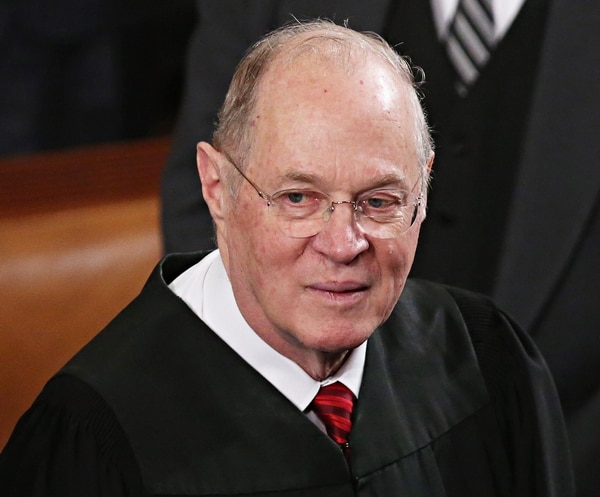
ANTHONY KENNEDY: AMERICA’S FIRST
“GAY JUSTICE”
BY DAVID CLOUD
(Friday Church News Notes, July 13, 2018, www.wayoflife.org, fbns@wayoflife.org, 866-295-4143) - republished below in full unedited for informational, educational and research purposes:The following is excerpted from “The First Gay Justice,” CBNNews, Jun. 28, 2018: “Washington is abuzz over the retirement of Supreme Court Justice Anthony Kennedy. While some have called him a moderate voice on the bench, his record shows he’s actually been a primary force for progressives, giving liberals numerous wins on the social issues that have discouraged many American Christians for decades. Kennedy was actually not Ronald Reagan’s first choice for the Supreme Court—he was his third. But Kennedy became a justice on the highest court in the land after the Senate rejected Judge Robert Bork—Reagan’s first choice—and after his second choice, Judge Douglas Ginsburg, withdrew his name in the wake of criticism over his personal and ethical conduct. But Reagan likely never anticipated the crucial tie-breaker role that Kennedy would come to fill on the court, or the way he would propel gay rights and abortion rights forward. Kennedy, 81, spent his last decade on the court as the key swing vote on an ideologically split court after Sandra Day O'Connor retired in 2006. He also went on to author the Supreme Court’s most significant gay rights cases including the biggest—2015’s Obergefell v. Hodges—which decreed that same-sex couples can marry anywhere in the United States. Kennedy wrote three other majority opinions favoring LGBT rights. … In 2003, he led the court in striking down state bans on gay sex; and in 2013, he wrote that legally married gay couples must receive the same federal benefits as other married couples. Michael Dorf, a Cornell University law professor, declared in 2013, ‘Kennedy has now firmly secured his place in history as the first gay justice.’ Kennedy also made a significant decision to uphold the country’s landmark abortion ruling, Roe v. Wade. In 1992, he was part of a majority that upheld Roe which declares a constitutional right to abortion. He initially was part of a group of justices that wanted to effectively overrule Roe. He also switched sides in 1992 to end up supporting a ban on prayer in public schools. … Kennedy’s retirement paves the way for the president to choose his second Supreme Court justice and shape the court for years to come. It’s a moment that both conservatives and liberals can agree upon with respect to its significance.”